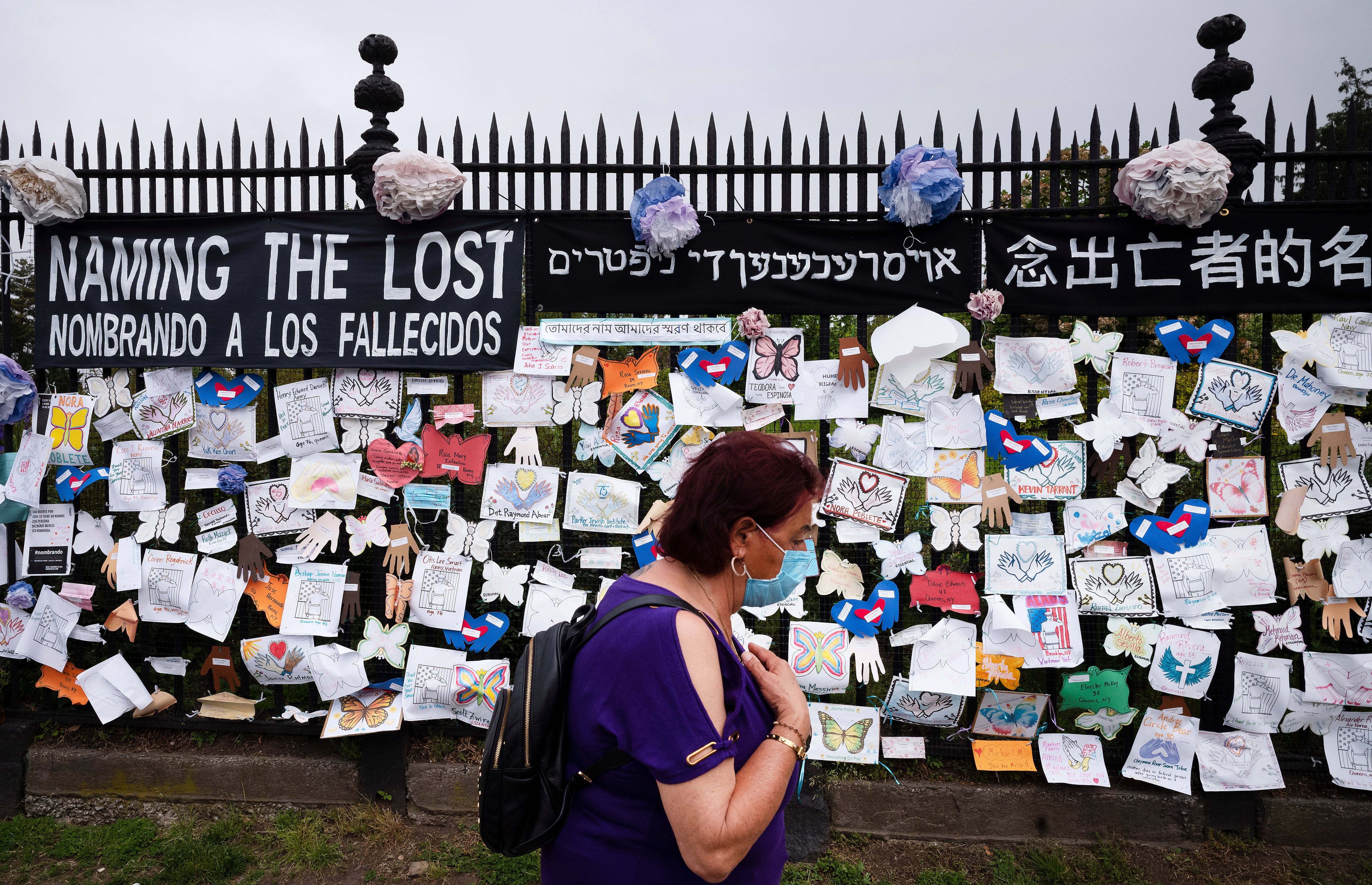Virus uptick in Hasidic NYC neighborhoods causes concern
A spike in COVID-19 cases in a handful of Brooklyn and Queens neighborhoods with large Orthodox Jewish populations is raising alarm bells even as New York City’s overall infection rate remains low

Your support helps us to tell the story
From reproductive rights to climate change to Big Tech, The Independent is on the ground when the story is developing. Whether it's investigating the financials of Elon Musk's pro-Trump PAC or producing our latest documentary, 'The A Word', which shines a light on the American women fighting for reproductive rights, we know how important it is to parse out the facts from the messaging.
At such a critical moment in US history, we need reporters on the ground. Your donation allows us to keep sending journalists to speak to both sides of the story.
The Independent is trusted by Americans across the entire political spectrum. And unlike many other quality news outlets, we choose not to lock Americans out of our reporting and analysis with paywalls. We believe quality journalism should be available to everyone, paid for by those who can afford it.
Your support makes all the difference.A spike in COVID-19 cases in a handful of Brooklyn and Queens neighborhoods with large Orthodox Jewish populations is raising alarm bells even as New York City's overall infection rate remains low, city officials said Wednesday.
The neighborhoods including Borough Park and Williamsburg accounted for 20% of the city's COVID-19 cases in recent weeks, according to city Health Department numbers.
“We have a lot to do because we’re seeing a serious uptick in multiple neighborhoods simultaneously,” Mayor Bill de Blasio said at his daily coronavirus briefing. “And it’s something we have to address with a very aggressive public health effort right away.”
Some neighborhoods have drawn scrutiny since early in the coronavirus pandemic for large gatherings that violated social distancing guidelines. De Blasio personally oversaw the dispersal of a Hasidic funeral in Williamsburg in April and weathered criticism over a tweet warning “the Jewish community, and all communities" to heed the virus.
Dr. Mitchell Katz, the head of the city's public hospital system, said health officials are meeting with religious leaders in the hard-hit neighborhoods, making robocalls in English and Yiddish and sending sound trucks to flood the streets with messages about virus guidelines.
Katz said the city hopes to prevent gatherings such as wedding banquets in the communities that are seeing an uptick.
“Large indoor activities are a huge problem for COVID transmission,” he said.
Katz said his own father-in-law died of COVID-19 two nights ago in Israel.
According to the Health Department, the number of COVID-19 cases in neighborhoods along Brooklyn's Ocean Parkway more than tripled from 122, in the week that ended Aug. 1, to 381 in the week that ended Sept. 19.
De Blasio said police would help enforce social distancing guidelines in the neighborhoods. Two yeshivas that saw coronavirus clusters have been closed, he said.
Spikes in coronavirus infections have also been tied to other types of religious gatherings in New York, as elsewhere. The Lighthouse Baptist Church in upstate Chemung County has been linked to at least 45 cases across six counties.
Rabbi Avi Shafran, a spokesperson for Agudath Israel of America, an Orthodox Jewish umbrella organization, said city officials are right to call on the community “to do all it can to limit the spread of COVID-19" but should not single out any particular group.
“There are likely people in the Orthodox community, as there are in other groups, including club-goers and protesters, who are not heeding the guidelines aimed at curbing the spread of the disease,” Shafran said. “They need, all of them, to realize that it is dangerous, for themselves and others, to not follow health authorities’ recommendations.”